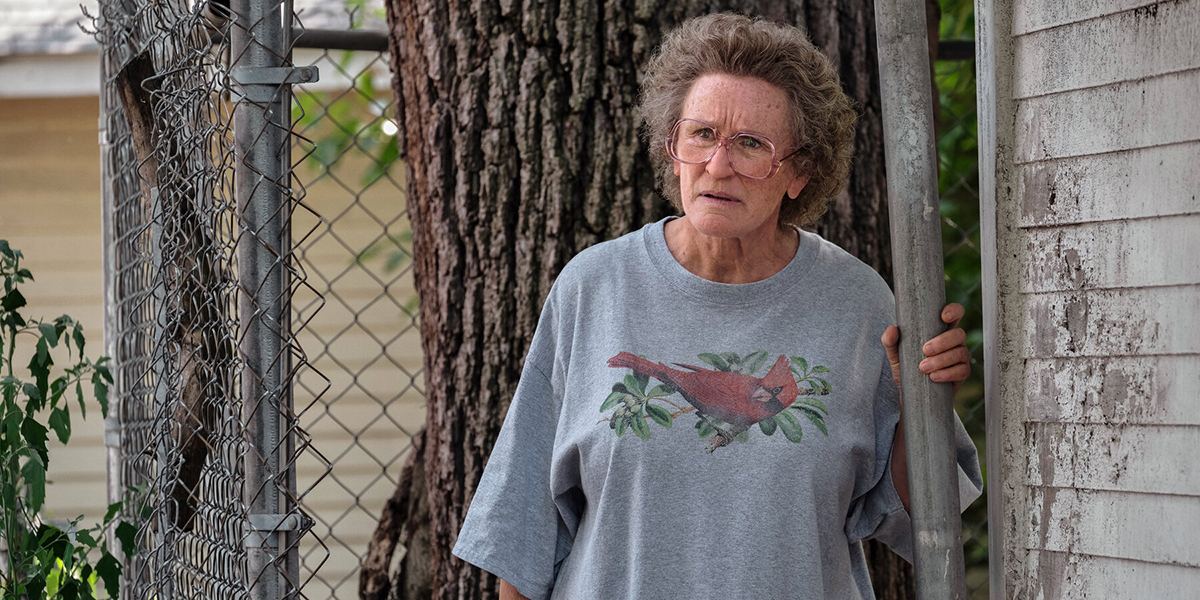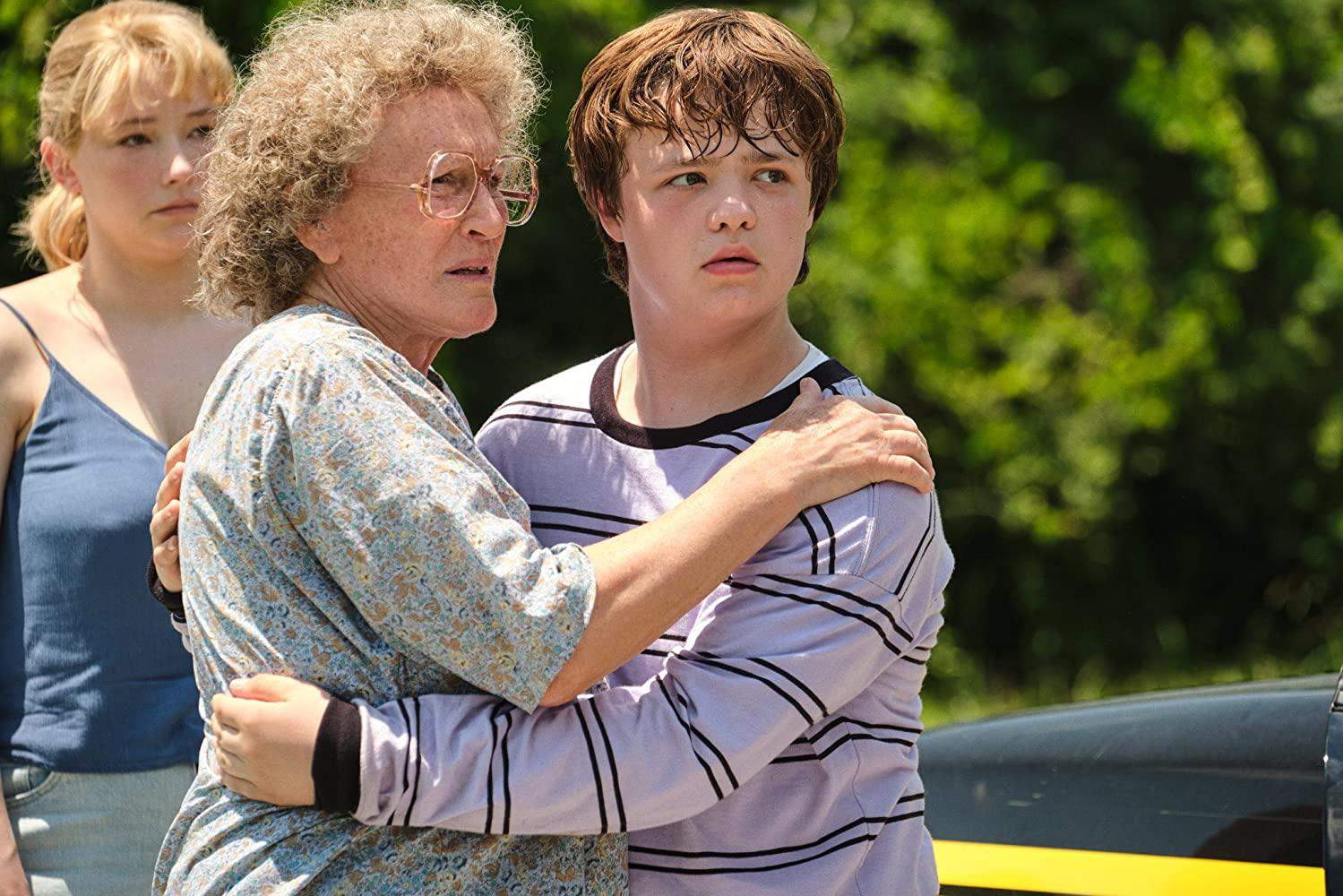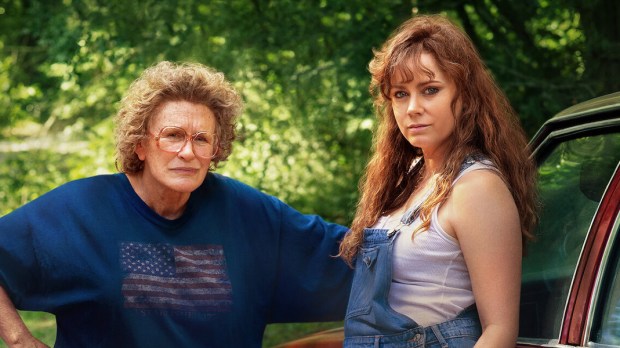Netflix’s Hillbilly Elegy may not get the awards consideration that its makers may have hoped it would when signing perennial Oscar contenders Amy Adams and Glenn Close to starring roles. But the movie, based on J.D. Vance’s best-selling 2016memoir, has nevertheless become one of Netflix’s most-watched films. It details Vance’s difficult upbringing with his drug-addicted mother (played by Adams) and how his grandmother—whom he called “Mamaw,” played by Close—helped turn his life around. And throughout it all, the film, like the book, revolves around themes like forgiveness, faith and, most especially, family.
Aleteia had a chance to talk with Vance shortly after the movie was released. A convert to Catholicism, Vance discussed his faith, both then and now, and how well the film captured the essence of his upbringing—especially his delightfully raw and deeply principled Mamaw. (The conversation has been condensed here for length and clarity.)
Aleteia: I watched and reviewed Hillbilly Elegy, and one of the most delightful characters was Mamaw, your grandmother. She was a pretty amazing character. How well did Glenn Close capture her spirit?
J.D. Vance: She did very well. Mamaw was such a big figure. When she died, we made this CD collection of all of her favorite songs: some Elvis and some Sam Cooke, some gospel songs, things she just really liked. And we titled it, “Bonnie Vance: A Force of Nature,” because that’s how we understood and thought of her. It’s impossible to do full credit to her, especially in a two-hour movie. But I think Glenn Close did about as well as anybody could’ve done, and certainly better than I expected anyone to do. She really internalized Mamaw’s character.
We were able to watch a big part of the movie process. We looked at some of the script drafts and participated on set, and one of the first times we saw Glenn as Mamaw was in Macon, Georgia [where much of the movie was filmed], and my aunt, my uncle and my mom were sort of breath-taken. They couldn’t speak. They were really emotional. My aunt was crying. My uncle, who’s not a very emotional man, was on the verge of tears.

And it wasn’t just the makeup and the look. I mean, she really does look just like Mamaw. But it was just the little things, like the way she’d hold a cigarette, the way her mouth would twitch when she was upset, the way she walked. There was just this really powerful thing going on. And Mamaw’s been gone for over a decade now. [Close] just sort of picked that up from talking to us.
Aleteia: Obviously, Mamaw had a tremendous impact on you growing up, and it illustrates how important it is for kids to have someone they can truly count on, even if that someone isn’t their parents. I’m sure you’ve thought about where you might’ve ended up if it hadn’t been for her. Where would that might’ve been?

Vance: I’ve thought a lot about it. I don’t know, of course. I certainly don’t think I would have—my measure of success has always been giving my kids the things that I didn’t have: A little bit of stability, a little bit of comfort. Just the recognition that they could rely on me and depend on me to provide the basics, emotional and material. I don’t think I [would’ve been able to do that if it wasn’t for her]. I was a very troubled kid in a lot of ways. I think that I hid it in some ways pretty well, but I was very angry, very resentful. I was very willing to go down a pretty dark path. … Does it end up in a drug overdose, does it end up in me jail somewhere, does it end up in me having a family but in some way repeating the cycle—neglecting my own kids? Being abusive to my own kids? God, I hope not, but maybe that is where it ends up.
I think about that a lot. Without her I certainly don’t think things would’ve worked out as well for me.
Aleteia: One of the things that struck me about Hillbilly Elegy was this understated stream of faith throughout—a sense of belief that sometimes clashed with the family’s cursing and habits and such. Can you unpack that a little bit? how important was faith growing up?
Vance: It’s interesting. The movie begins with that sort of evangelist program on the radio, which I thought was an important kind of environmental or background touch. The way I would describe faith to us is that it was very important. Mamaw was a very devout Christian. But it was de-institutionalized for us, for lack of a better word. We weren’t going to church every week. We went to church maybe a half a dozen times a year.
[Jesus] was very much a figure in our house. We had that old [Warner Sallman] portrait of Jesus on both floors of the house. We had Bibles everywhere. Mamaw and I would do these little prayer and Bible study sessions. She loved Billy Graham. I mean really loved Billy Graham. So it was very much a way in which we thought about the world. But it didn’t provide that sense of community which I now think is such an important part of being a Christian. For most of our lives we just didn’t have that. And I do think that Mamaw probably would’ve been happier, and I probably would’ve been happier, if we’d been a little more active about it. But there were just all these complicated reasons — reasons I haven’t totally figured out myself — for why Mamaw believed so powerfully but didn’t really feel comfortable in most churches.
Aleteia: I understand that you converted to Catholicism. Can you tell me how that move took place?
Vance: A friend made the observation that he thought I was attracted to Catholicism because of how historically rooted it is. I’m sort of one of these people who really likes to feel like I have historical, cultural grounding, and Catholicism definitely provides that, if for no other reason than it’s just so old.
As a kid, I was a Christian, but I didn’t really have a church community. So I was thinking about getting back into it: It was just in a moment in my life where I had a child, and we were sort of starting a young family, and we were sort of thinking about whatat least my engagement with faith would look like. And some of it’s just personal. Serendipitous people in my life who were very helpful to me, influential to me, very good to me who happened to be Catholics, and so I was interested in it for that reason.
But I think a lot of it is that it there’s this interesting theory of virtue that runs through the Catholic faith that is very attractive to me, [that virtue] is simultaneously individual, communal and societal—what Catholics would call subsidiarity. This idea that virtue sort of exists at each of these layers of society and you need each of them to work well in concert. That just seemed to really speak to me, and it still does, and I think that’s a big part why I ultimately became a Catholic. It just had an account of virtue and sin that I found very compelling.
Aleteia: One of the most moving lines in the movie was when your sister, Lindsay (played by Haley Bennett) turns to J.D. (Gabriel Basso) and says of your mother, “I can’t defend her, but I’m trying to forgive her.” Obviously, your mom, Bev, was deeply troubled, and there was a lot to forgive—as there probably is in many families. How important is forgiveness in the context of family?
Vance: Very. I think one of the things that allowed me to understand and ultimately forgive mymom was writing the book, and being forced to think about this. If you look at the drafts from 2013, they were much more resentful than the drafts from 2015. And I think the reason is that I actually started to think about my own life, my own faults, the ways in which I promised myself that I would not be that sort of hyper-emotional, high-tempered person, and I found myself being pretty high-tempered with the woman who would eventually become my wife. And so I think forgiving mom allowed me to be a little more understanding and empathetic even with myself and with other people in my family. And I think that was a very important part of getting on the road to healing.
And that’s really what it’s about. When you come from a tough childhood … you’re going to be left with scars from it. Ways of fighting, ways of disagreeing, ways of thinking that just aren’t that productive. And to fix those things, I think requires forgiveness. Because if you’re just resentful about things, you’re never going to do this necessary self-reflection that allows you to both understand the people that you love, and ultimately understand yourself either.
Hillbilly Elegy is on Netflix now, but it is rated R for language and content.

Read more:
8 Bible verses about God’s forgiveness

